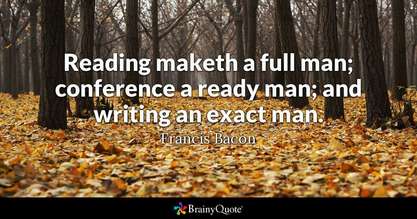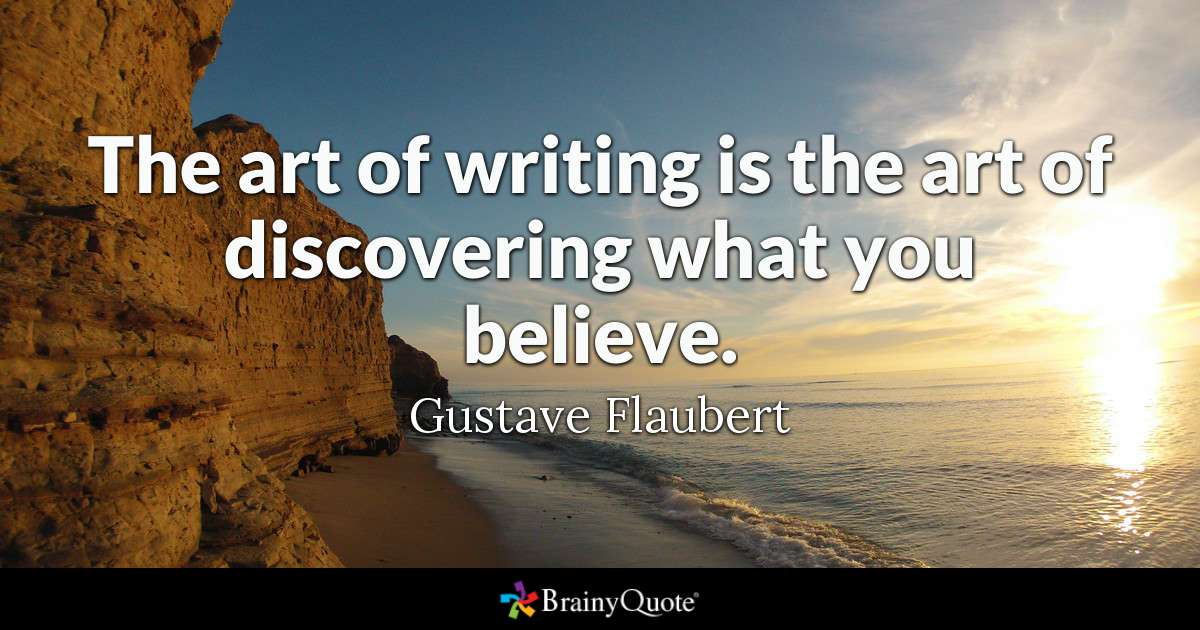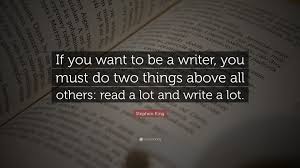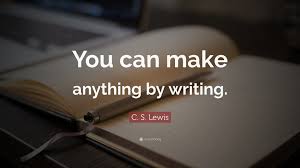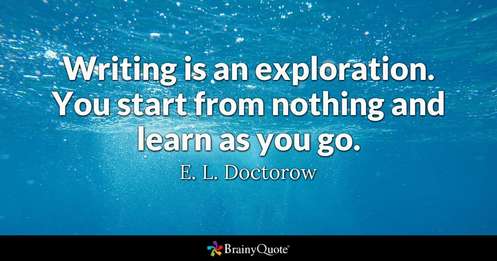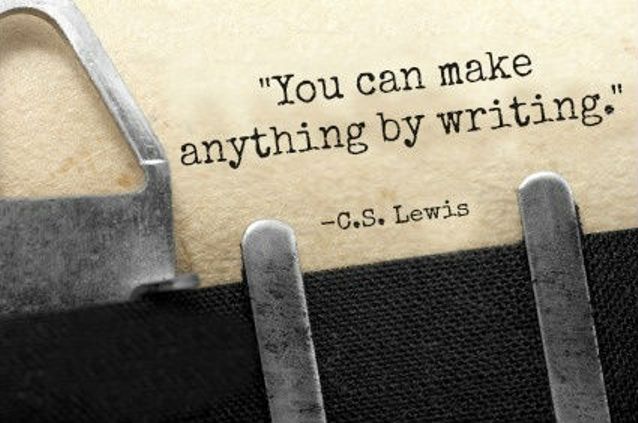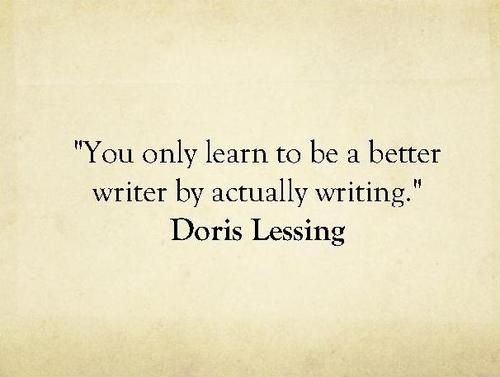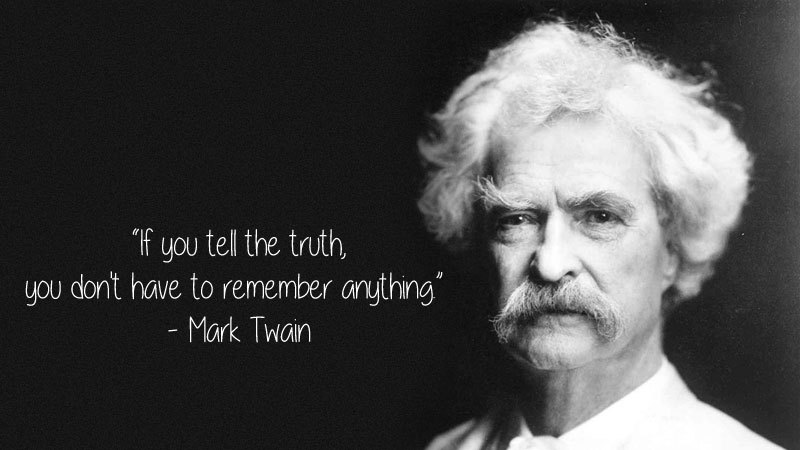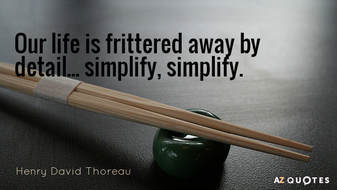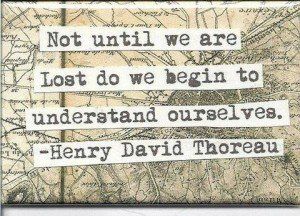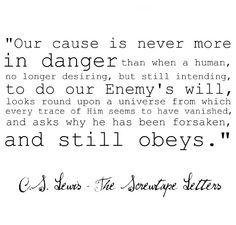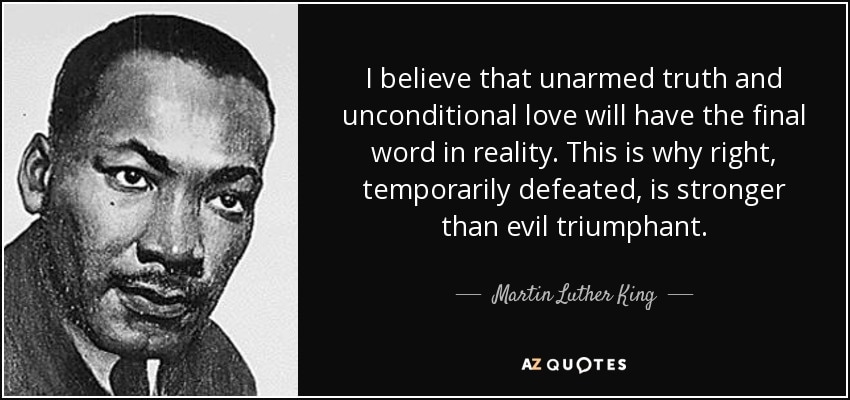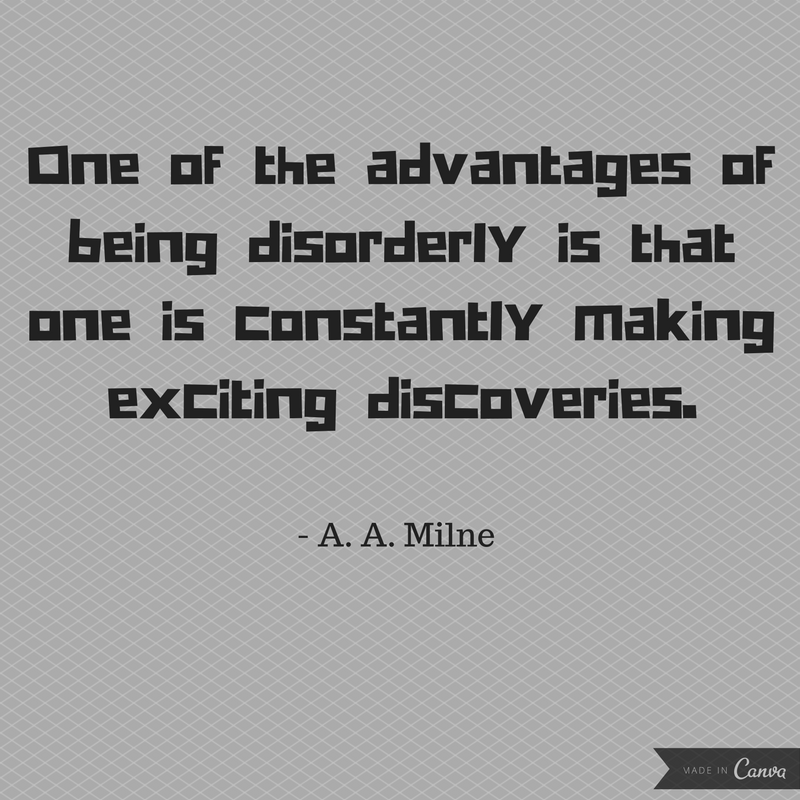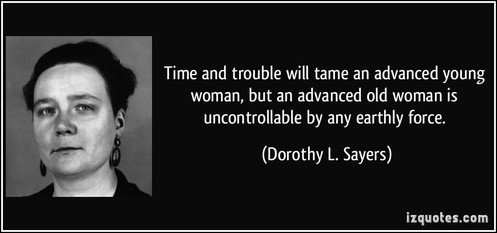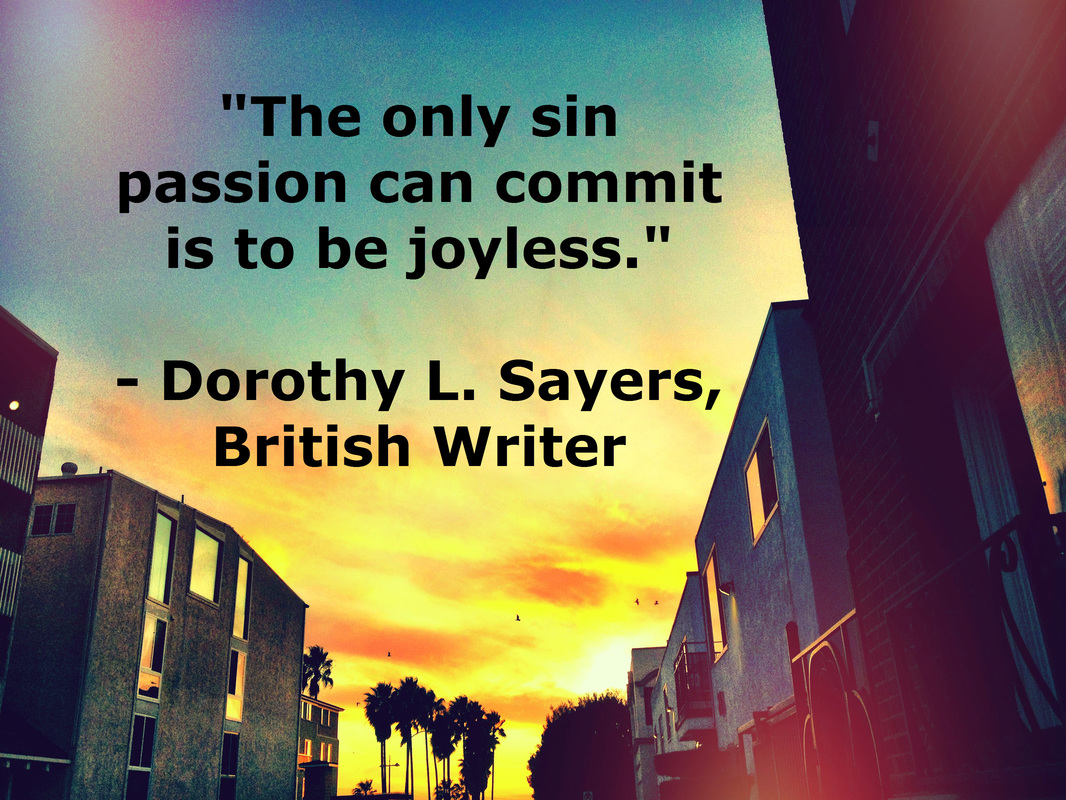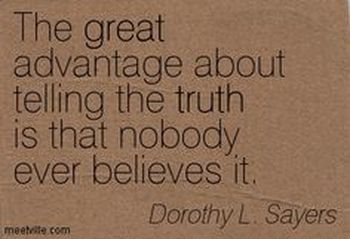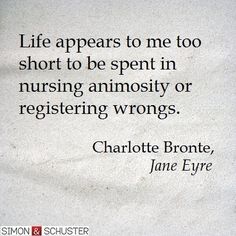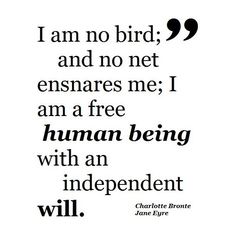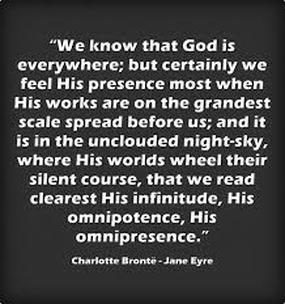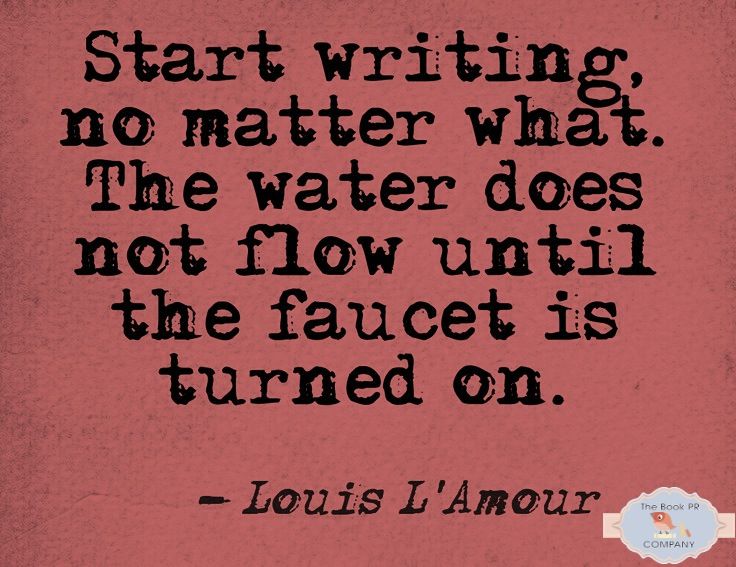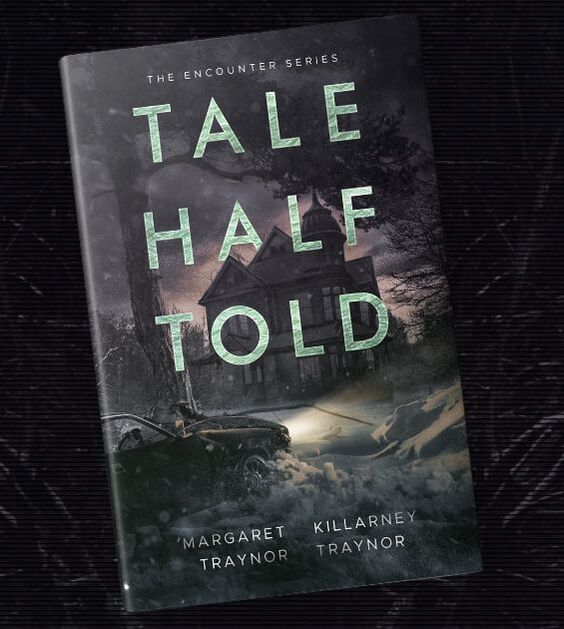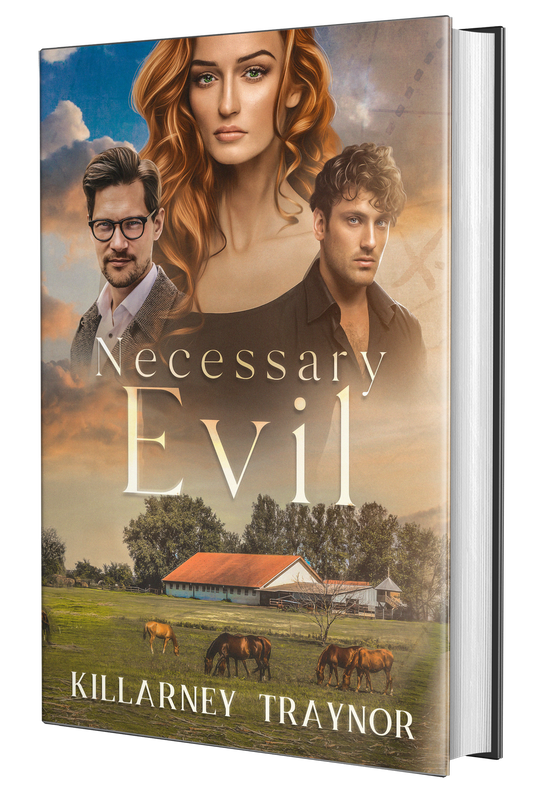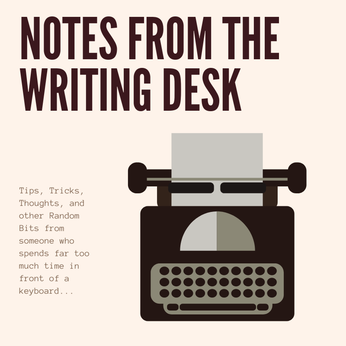 To quote Magnum, PI: "Now, I know what you're thinking. And you'd be right! Only..." One of the most common pieces of writing advice I've heard is this: You need a Killer First Line, one that will hook the reader, be he/she an editor, an agent, your best friend, a stranger in Barnes and Noble, or even your mom. A Killer First Line grabs the reader's attention and pulls them, helplessly into your story, ensuring that they will read the second line. A Killer First Line sets up the rest of your book. And there's always the hope that if you nail that Killer First Line, it's going to be gracing blog posts and articles about writing from here until the end of time. Needless to say, there is a TON riding on your first line. So much so, that you can spend hours, days, sometimes even weeks tinkering with the line, loving the line, hating the line, re-writing the line again and again, getting caught like a fish on a... line (see what I did there? :) ). It's daunting, that Killer First Line. It can even be debilitating. Which is why I recommend that you completely ignore the Killer First Line. "WHAT?!" You exclaim. "Ignore the first line and lose out on fame and fortune and retweets? Are you insane?" No, I'm not (or at least this isn't proof of it). I'm not saying never address the Killer First Line. I'm saying ignore it for your first draft. Maybe even your second or your third draft. Leave it alone - write a place-holder line and then ignore the stupid thing. Write the book first. Then write the first line.  I know this sounds backwards, but I actually have some good reasons to suggest this: the first being, if you choke up on the first line, you'll never finish the book. Trust me, I've been there before. I concentrated so hard on one stupid sentence, a sentence I couldn't conquer, that I lost interest in the book and faith in myself and the story died on the vine. Tragic, I know, but I recovered. But the more important reason is the second one: Until you've written the book, you don't really know what it's about. Stories are funny things. You set up a scenario, you find your characters and your settings, you outline, and you begin. You think you have it all worked out until suddenly, magic happens, the story twists, and you find yourself in a place you never expected. Or, the story turns out somewhat like you'd originally imagined, but halfway through the story, you realized a deeper meaning to the story or the characters. This is the good stuff, these unexpected treasures. Second drafts were made to expound on them, take advantage of them, and pare away the dross of unneeded prose so that the shining gold of your discovery can be made visible. And once you find the gold, bam! There's your Killer First Line. That's not to say that your Killer First Line is going to be any easier to write in draft three. Most likely, it'll be just a tricky. But at least then you'll know what story your actually setting up, the true story, the story that lay buried deep within your initial outline (or in your imagination, if your pantser). The moral of this story? Killer First Lines are amazing, but they aren't actually the first thing. Your story is. Without the story, without the book itself, the Killer First Line is really just a line, a throw-away that means little without the bigger story to back it. So write your story first and the Killer First Line will follow. It's practically a guarantee. Agree? Disagree? Have a better idea? Comment below and let me know what you think!
0 Comments
There seems to be some confusion about who wrote this poem, either Edgar A Guest or John Greenleaf Whittier. Whom ever it was, there's no doubt that this is a great pick-me-up. Learn it, love it, and never quit!  When Things go wrong, as they sometimes will, When the road you're trudging seems all uphill, When the funds are low and debts are high, And you want to Smile but have to sigh. When care is pressing you down a bit, Rest, if you must, but don't you quit. Life is queer with its twists and turns, As everyone of us sometimes learns, And many a failure turns about, When he might have won if he'd stuck it out, Don't give up though the pace seems slow, You might succeed with another blow. Success is failure turned inside out, The silver tint of clouds of doubt, And you never can tell how close you are, It may be near when it seems afar, So stick to the fight when you're hardest hit, It's when things seem worst that you mustn't quit.  For some reason, this poem has been on autoplay in my head all week (that and Days in the Sun from Beauty and the Beast - excellent movie, you should really go see it). I memorized this as a teenager and can still recite most by heart. What I love most about this is its vigor and inherent optimism. Hopefully it'll resonate with you, too. Happy Friday! Psalm of Lifeby Henry Wadsworth Longfellow
What The Heart Of The Young Man Said To The Psalmist.: Tell me not, in mournful numbers, Life is but an empty dream! For the soul is dead that slumbers, And things are not what they seem. Life is real! Life is earnest! And the grave is not its goal; Dust thou art, to dust returnest, Was not spoken of the soul. Not enjoyment, and not sorrow, Is our destined end or way; But to act, that each to-morrow Find us farther than to-day. Art is long, and Time is fleeting, And our hearts, though stout and brave, Still, like muffled drums, are beating Funeral marches to the grave. In the world’s broad field of battle, In the bivouac of Life, Be not like dumb, driven cattle! Be a hero in the strife! Trust no Future, howe’er pleasant! Let the dead Past bury its dead! Act,— act in the living Present! Heart within, and God o’erhead! Lives of great men all remind us We can make our lives sublime, And, departing, leave behind us Footprints on the sands of time; Footprints, that perhaps another, Sailing o’er life’s solemn main, A forlorn and shipwrecked brother, Seeing, shall take heart again. Let us, then, be up and doing, With a heart for any fate; Still achieving, still pursuing, Learn to labor and to wait.  I've been listening to Lewis's The Screwtape Letters again and, as always, find this book to be eerily timely. There are a lot of good reminders in here that this life is not all that there is and to beware the confusion that comes from putting too much importance on the happenings of men and countries. Here are a few of my favorite quotes. (I'm omitting the one about politics - that's already been getting a lot of shares lately!) A. A. Milne is, of course, best known for Winnie the Pooh. His gentle wisdom and humor has made Pooh one of the staples of childhood literature.
I thought I'd share a pearl of his wisdom today. And with the busy holiday season almost upon us, this seemed especially apt: I first discovered this poem while reading The Book of Virtues edited by William J. Bennett. It's one of the few poems that I have committed to memory (ask my directors - I have horrible memorization skills._ There is some controversy over who wrote it, but whether it was Edgar G. Guest or an unknown, these uplifting words of wisdom helped carried me through many low points. Hopefully it will do the same for you. Don't Quit When Things go wrong, as they sometimes will, When the road you're trudging seems all uphill, When the funds are low and debts are high, And you want to Smile but have to sigh. When care is pressing you down a bit, Rest, if you must, but don't you quit. Life is queer with its twists and turns, As everyone of us sometimes learns, And many a failure turns about, When he might have won if he'd stuck it out, Don't give up though the pace seems slow, You might succeed with another blow. Often the struggler has given up, When he might captured the victor's cup. And he learned too late, when the night slipped down, How close he was to the golden crown, Success is failure turned inside out, The silver tint of clouds of doubt, And you never can tell how close you are, It may be near when it seems afar, So stick to the fight when you're hardest hit, It's when things seem worst that you mustn't quit Jane Eyre was one of those books that rocked my teen-aged world and it's only grown better with time.
 Over the course of the past few weeks, I got a chance to interview Jenna Brooks, a talented author, awesome editor, fierce Mother’s Rights activist, and former homeschooling mother of two. "Unconventional" is a word that particularly suits Jenna: she couldn’t resist turning the interview on me a few times! Jenna’s the author of award-winning October Snow, its sequel An Early Frost, and a new set of handbooks for survivors of domestic violence. Here, she discusses her new projects, her thoughts on evil and truth in the world today, and how her faith influences her writings. KT: The obligatory first question: what started you writing? JB: Dude. Really? I'm not one for self-introspection. It can turn paralyzing (not to mention, boring) real fast. Best I can tell you is, it's a compulsion. Always has been. C'mon. Go philosophical on me. Or maybe issues - let's give the reader something to talk about. KT: Okay, challenge accepted: Here are two questions: Your books, October Snow and An Early Frost center on strong female characters and their friendship with each other, something that can seem a rarity in books and movies these days. How do you feel women are generally represented in books and movies today? And how do you hope your books and characters speak to women today? JB: I don't believe that women are represented authentically at all in books and movies (or in any form of media, for that matter). Not these days, anyway. Generally speaking, I think the vapid, oversexed, emotionally over-dependent females that we too often see in art and in media are no more than the fantasies of a culture that has turned wholly contemptuous towards women, and we aren't portrayed realistically. It's an insidious kind of propaganda, designed to keep women silent - because the most powerful force of good known to mankind is a woman who knows her worth, and who has no problem with making her opinions known. As for the second question: I hope I help women to remember their dignity. To find their voices. While this culture debates to death every evil (or what is perceived as evil) out there, we aren't talking about the main reason that this culture is circling the drain: Women have been silenced, and the primary weapon used against us is shame. It's now arrived at the point where the very things that shamed us into silence - porn, faux-feminism, abortion, all resulting in the "Jezebel" theology of far too many churches - have been fully mainstreamed into our society. They're accepted as being normal. And when you consider these facts: 1. Very few women were in positions of institutional, media, or judicial/legislative power when these aberrations were promoted and incorporated - for our own good, they told us - and 2. That women are now blamed for the results... Well, you have to wonder if the greatest scam of all time has been played against women. KT: Dignity is a great word that you don't hear all that often. I notice that you use it a lot in After Awareness, your guide to helping battered women, which is based in part on your 10+ year experience helping domestic violence victims. What do you find is a major stumbling block to those who've lost their sense of dignity? JB: I'll answer, but you go first. What do you think is a stumbling block to women's dignity? Or, do you not regard it as an issue? 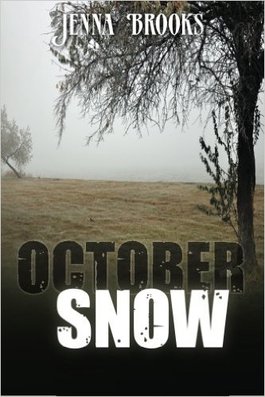 KT: Wait, who is giving the interview here? All right: the concept of dignity is suffering across both genders and I think a lot of it has to do with knowing who you are. Dignity means self-respect, a sense of pride in oneself, something that, by definition, takes time and effort to build. But how can your respect what you don't know or cannot define? We're largely choosing not to raise our children in religion, our families are scattered, and our national identity is being shattered. Even the concept of gender is becoming a fluid idea. If you don't know that you're a child of God, or your family, or if being patriotic is good, or whether or not you're even male or female, how can you know yourself enough to respect yourself? Truth is being redefined to mean "what is true for me or you at this particular moment". We learn largely through trial and error - but if there is no error, no truth that we cannot reason or talk our way around, no good, no bad, no wrong, no right, and everything can change on a dime... How can you build anything, including self-respect, on shifting sand? So, that is my two-cents and I turn the camera back to you: What do you find is a major stumbling block to those who've lost their sense of dignity? And how can they overcome it? JB: Real quick, on your comments about truth: The truth is not a wide road, and it's not a free-flowing, individualistic narrative that's defined by one's personal experiences. It's a pinpoint of stark reality, never changing, created by God and no one else. And we either accept it or we reject it - and I believe that creating alternate realities is a factor in the emotional instability we see all around us. I mean, I disagree with that famous quote about the definition of insanity - that it's doing the same thing over and over while expecting a different result. If that were accurate, then no one is sane. I think insanity is indicated by the level of outrage a person experiences when the results are always the same. And we can tell the truth about how we feel, but when we term our feelings as the ultimate "truth" - and worse yet, deem them to be divinely inspired - we're tap-dancing all around the unpardonable sin. Just my opinion. Okay, the biggest stumbling blocks to dignity: For males, I say it's fear of being a hypocrite - which, when you boil it down, is actually a form of cowardice. This culture has gone off the rails; yet instead of doing the required one-eighty and setting the example for our children, they tend to hide inside their shame. The only way to overcome that is through three little words: "I was wrong." And then make it right. For women...? Okay, here's another question for you (and again, generally speaking): How do you think people react to a woman who thinks highly of herself? Who sets immovable standards for how she will be treated? KT: People who act with dignity and self-respect tend to inspire a like response in others. Those who are easily threatened (bullies, the childish, etc) will probably react poorly, as they would when confronted with other good things in life. As to your second question, in a free society (absent of slavery or serfdom) the dignified woman (or man) sets the standard for themselves. However, dignity is not determined by the treatment of others: it is both inherent and assumed by the individual. Since we're both Christian, I can comfortably say that God values us and it is from Him alone that we receive our worth. Being treated badly by others does not change our worth (because it has not that power) and need not change our self-respect: some examples of dignity maintained under fire would be Rosa Parks, Mother Theresa, Booker T. Washington, and Maximilian Kolbe. What bad treatment can do is blind us to our sense of worth - which is, indeed, a terrible, terrible crime. Okay, back at you. Your books deal heavily with recovering a sense of self after abuse, both verbal and physical. What is a practical way a friend can help a recovering victim towards recovering her (or his) true sense of worth and self-respect? Or is this something that the victim can only do alone? 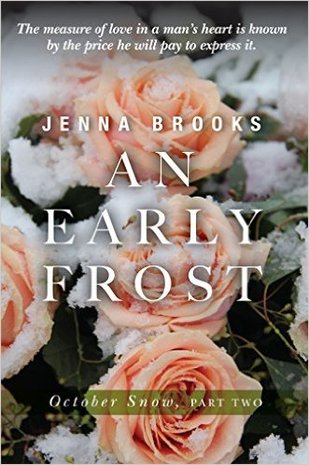 JB: I dunno, Traynor... I feel like you sidestepped (but only slightly) the issue of the response to women who display their dignity. But I'll let that go. (Yeah. That's bait.) Last question first: Some women are fully able to recover on their own, but with no thanks to a culture and a court system that I believe is, at best, lukewarm about actually advocating for abused women. In too many cases, our institutions are actually allies of the criminal. I suppose that's a whole other topic, though. As for the first question: I have to take brief issue with the way you phrased it, because I don't agree with the notion that violence against men is even in the same universe as violence against women; if nothing else, the results are vastly different, as are the options for escape and subsequent rehabilitation. The determination to equalize the genders in all things is, on its face, a troubling cultural trend - and when it comes to DV, the results can be deadly. That said, helping a battered woman can be a minefield. The first thing that caring people can do, and should do, is to get educated. Most people are badly misinformed about what's really going on out there, and there's plenty of research that blows a hole through the conventional ideas about DV and its targets. And definitely, everyone needs to get up-to-speed on the truth about the Family Court industry, especially if they still believe that the courts favor mothers. They don't, and abused mothers and children are often further traumatized by the system's acceptance of (alliance with?) the Father's Rights movement. (Anyone who wants to learn more can start here.) After becoming fully educated - and having avoided the Father's Rights propaganda while doing so - there's a process to helping a target survive and then get back on her feet. I wrote that handbook that explains what to do and what not to do, but the best advice I can offer is this: Never lose sight of the fact that women who are terrorized have experienced trauma. Sounds obvious, right? Yet if we're honest, doesn't our society pin some of the responsibility for an abuser's felonies directly on the woman he battered? And after she escapes, if indeed she does survive him, doesn't our society treat her like she should be able to simply start her life over again - no problem? Finally, do what you can to change the culture, because the roots of DV are now firmly planted within our lives. Again, I have suggestions for that in After Awareness. KT: Yes, I agree that we tend to just want the victim to 'just move on'. I suppose this could be seen as a reflection of our collective guilt as a society. After all, most DV abuse happens right under our noses, to people that we see on the playgrounds, at stores, in parties, schools, churches, and book clubs, and yet often we're caught unawares. So, we have your handbooks to learn more. Is there a place for DV victims and their friends to go to discuss the often overwhelming task of rebuilding a life and self? JB: Not usually - not for what happens after a DV situation. That's why I wrote the books. Are we going to talk about literature soon? KT: Of course we are! Which authors or books have most heavily influenced you? JB: My writing isn't influenced by other books, but my life is directed by The Bible, and I read non-fiction from authors such as Dan Allender and Charles Stanley. I keep Viktor Frankl's Man's Search for Meaning on my desk. That said, I'm inspired by my interactions with people - and when I come away angry enough, I write.  KT: You need to explain that last comment. JB: I think my anger is my most productive resource for my work. It motivates me. And I often wonder why so many people have turned tepid toward the evil in the world - how it is that they can look directly at the destruction of another soul and say nothing, do nothing. Or worse, find a way to blame the one who is being oppressed. Every time I think I'd like to go do something else, I'm reminded of a couple of people who were very close to me, whose lives was taken apart by violence. Not so much by the actual abuser, but by the ignorance and subsequent apathy of those around them. And I decide to stay in the fight. I think I got off topic. Sorry. KT: No worries! People have compared your books to Stephen King, though yours do not feature the supernatural. How do you feel about that comparison? Do you think it's apt? JB: Stephen King? I don't recall that one. I've heard Gillian Flynn and Liane Moriarty, because my novels - especially October Snow - mess with the reader's head. I got a couple of comments referencing Hitchcock (not sure why that would be, though), but I haven't heard a comparison to King. Speaking of Hitchcock, I so would put your books up there with his movies, but we'd have to also include comparisons to the great classic romances of that era. Like Necessary Evil - who would you cast as Greg and Maddie? Same for Summer Shadows: who would play Robert and Julia? KT: Hey, I'm supposed to be interviewing you, not the other way around! Seriously, I don't mind telling you who I'd cast in my books (though once you found out who inspired Gregory Randall, you'd throw something at me), but you're the subject, so I'm turning the question back on you: if you could cast whomever you'd like to play Josie, Samantha, and Maxine, who would play them? JB: No idea. No, actually, I think Chelsea Noble would be perfect as Jo. The others... I haven't thought about that in a long time. (And readers: Killarney told me privately which famous Hollywood actor inspired the character of Greg Randall. I LOVE it.) KT: What future projects can the readers expect from you? JB: I have three novels that I hope to launch in the next two years. Meltdown is Book Three of the October Snow series. It's a straight-up murder mystery, where Jack Seever turns up dead and the main suspects are the survivors from the first two books. I'm having a ball with this one. I never wrote a murder mystery before. Ventriloquist is a bit of a mindbender. Actually, it's a huge mindbender, deals with stalking - and what happens when the tables are turned. None So Free will come out in 2017. It's a tearjerker, and it may be my favorite project ever. By the way, I'll offer the handbooks After Awareness and The Alienated Mother for free on the day you post this interview, so let me know when. Know what? I'll price my novels at 50% off, too. I'll make an event out of it. Thanks for the chat. It was a lot of fun. KT: You can find Jenna's website at Jenna Brooks Online, and follow her on Twitter at @shesjennab. I was looking for inspiration and I stumbled on this gem from one of my favorite writers from childhood. Enjoy and share!
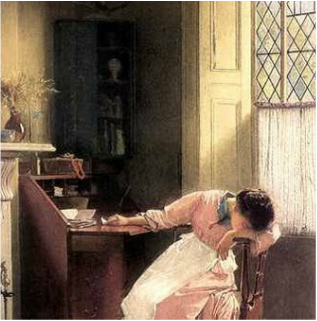 Scriptormorbus - commonly known as the 'writing disease' - is an affliction that strikes approximately 1 in 4 Americans* every year. It is commonly associated with those of a more imaginative or creative nature, occurring equally among men, women, and children of all ages, and can seem to strike without warning. When not properly treated, Scriptormorbus has been known to disrupt social schedules, relationships, and lives, and, in it's most extreme forms, can cause sufferers to quit their jobs and retire to the basement with only a coffee maker, a laptop, and "The Elements of Style" for company. Fortunately, the symptoms are easy to spot in all victims (except, perhaps, teenagers, who can exhibit much the same thanks to hormonal changes). To see if you or a loved one is suffering from Scriptomorbus, consult the following list of common symptoms: - Absent Mindedness - Long Periods of Withdrawal - Speaking in Half Sentences - Becomes frantic when separated from favorite laptop or notebook - Wild-Eyed Looks - Will argue for hours about Oxford commas - Wakes in the middle of the night, crying for a pen and paper - Emotional Outbreaks (usually prompted by the words, 'plot twist', 'plot hole', 'motivation', 'grammatical error', and 'deadline'.) - Refusal to Leave House/Favorite Cafe/Basement - Drinking too much coffee or tea - Eating too many snacks (especially ice cream) - Frequent rants about people not appreciating true art - Carries on intense conversations with invisible people (usually arguments) - Talks about characters as though they are real people - the following conservation is real, captured by a concerned citizen: "Then Jerry, the pain, decided that he wouldn't go into the dark room! What was I supposed to do? Now I have to re-write the entire ending! Friggin' Jerry!" "But... Isn't Jerry a figment of your imagination?" "...I don't know you anymore." If you or your loved one exhibits 2 or more of the symptoms, chances are they are suffering from Scriptormorbus. Severity will vary, depending upon the individual and their chosen writing style: for example, poets and dramatists are more likely to withdraw from the world in favor of the comtemplation of nature, while Sci-Fi writers are less likely, so long as there are Comic Cons and new Star Wars movies to see (and argue about). Although no cure for Scriptormorbus exists, there are many ways to treat this disease. The sufferer should be encouraged to do the following: - Schedule writing time: regular, regulated hours a week, with breaks for the bathroom and to answer his/her phone/emails and pay bills (if able) - Join a support group of fellow disgruntled authors, to air grievances, share brilliantly constructed passages, discuss plotting problems, and celebrate hard-earned 5-star reviews (trust me, family and friends: you'll appreciate the break) - Bathe/shower daily - Exercise regularly - Eat like a civilized human being (not merely subsisting on cafe scones and boxes of Honey Nut Cheerios) - Go outside at least once a month - Engage in some sort of social activity somewhere, sometime, with someone other than their imaginary friends Scriptormorbus is a treatable affliction, but it requires considerable patience and understanding from the patient's loved ones and friends. If you are a sufferer of Scriptormorbus, know that you are not alone. If you are a friend or family to a sufferer of Scriptormorbus, please accept our sympathies and gratitude: the road before you is a long one indeed. *All quoted stats are made up and are not to be trusted. |
The BlogWelcome to Categories
All
|
Copyright © Killarney Traynor
All Rights Reserved.
No part of this website may be reproduced without
the Owner's express consent. [Backlinks allowed.]
All Rights Reserved.
No part of this website may be reproduced without
the Owner's express consent. [Backlinks allowed.]

